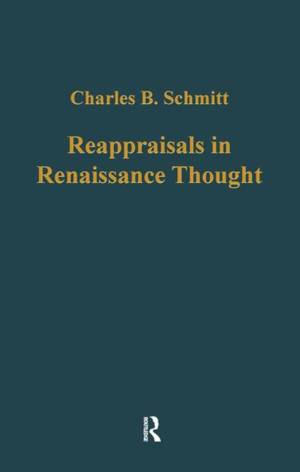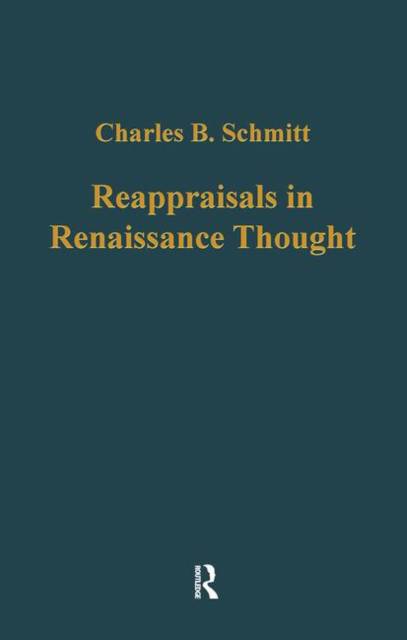
Door een staking bij bpost kan je online bestelling op dit moment iets langer onderweg zijn dan voorzien. Dringend iets nodig? Onze winkels ontvangen jou met open armen!
- Afhalen na 1 uur in een winkel met voorraad
- Gratis thuislevering in België vanaf € 30
- Ruim aanbod met 7 miljoen producten
Door een staking bij bpost kan je online bestelling op dit moment iets langer onderweg zijn dan voorzien. Dringend iets nodig? Onze winkels ontvangen jou met open armen!
- Afhalen na 1 uur in een winkel met voorraad
- Gratis thuislevering in België vanaf € 30
- Ruim aanbod met 7 miljoen producten
Zoeken
Omschrijving
This third collection of Charles Schmitt's articles complements the previous two and consists largely of studies published in the last few years of his life. It therefore contains his mature reflections on central issues in the fields of Renaissance philosophy and science, as well as important new research findings. The main subjects are Aristotelianism and Scepticism, and the history of medicine and natural philosophy. Some articles assess the place of traditional elements in the work of major scientific innovators, such as Galileo or Harvey, others make available new sources of documentation and show the significance of writings others had not deigned to look at. Charles Schmitt's insistence that Renaissance thought should be reconstructed in terms faithful to the value systems of the period also led to an increasing interest in the socio-economic context of philosophical speculation, reflected here in the studies on the University of Pisa in the 16th century.
Specificaties
Betrokkenen
- Auteur(s):
- Uitgeverij:
Inhoud
- Aantal bladzijden:
- 332
- Taal:
- Engels
- Reeks:
- Reeksnummer:
- nr. 297
Eigenschappen
- Productcode (EAN):
- 9780860782452
- Verschijningsdatum:
- 30/03/1989
- Uitvoering:
- Hardcover
- Formaat:
- Genaaid
- Afmetingen:
- 152 mm x 229 mm
- Gewicht:
- 598 g

Alleen bij Standaard Boekhandel
+ 265 punten op je klantenkaart van Standaard Boekhandel
Beoordelingen
We publiceren alleen reviews die voldoen aan de voorwaarden voor reviews. Bekijk onze voorwaarden voor reviews.











